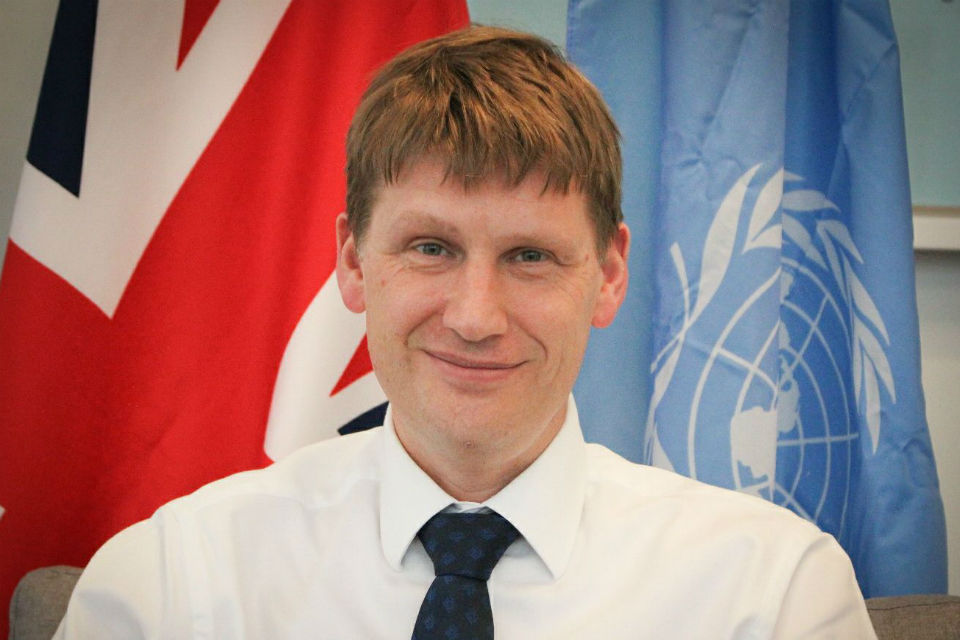Addressing human rights and peace negotiations in Afghanistan
Statement by Ambassador Jonathan Allen, UK Chargé d’Affaires to the UN, at the Security Council briefing on Afghanistan

Thank you very much Jun, and thank you for the briefing Ingrid. Let me begin, as others have done, welcome the appointment of Deborah Lyons as SRSG, and thank Special Representative Yamamoto for all his work.
Let me start with COVID-19, an issue, I think, of concern for all of us and not just on Afghanistan, but on a number of the issues - or all of the issues - on the Security Council’s agenda. So we are, of course, concerned globally, but also in Afghanistan in particular. And for our part, we are looking at our options of scaling up humanitarian action in response to the pandemic. And we’ll work closely with our partners in doing so. But it makes it even more important that firstly, the Taliban ceases its attacks in line with the Secretary-General’s call for a global ceasefire to confront the spread of the disease. And secondly, that Afghan political leaders come together so that the government can lead the necessary response. And I’m going to stay a bit more about both those later on. But a question for later for Ingrid: you talked about some of the concerns and the risks in Afghanistan, but it would be interesting to hear from you what actions you think the UN should be taking - and it’s the UN family - and how members of the Council can support that.
So moving on to the political side, I think it’s vital that we see quick progress towards intra-Afghan negotiations and ensure that momentum isn’t lost. We’ve seen some positive moments, including talks between the Afghan government and Taliban on prisoner releases and the announcement of an Afghan negotiation team.
But challenges clearly remain. And while it’s for Afghans themselves to work out the structures and formats of intra-Afghan negotiations, the UN and the international community should be flexible and ready to support, however is needed. The Taliban must negotiate with the Afghan government team in good faith. Only a negotiated and inclusive settlement will bring peace and the Taliban must end violence. That’s a clear demand from all Afghans. But we’re disappointed that leaders in Kabul have been unable to unite ahead of negotiations with the Taliban.
Now, Jun, is the time for them to follow through on their promises, set aside their differences and form a genuinely unified government. The Afghan people expect and deserve nothing less, and their political leaders must not squander this moment. And in particular, we want to ensure that we protect and build on the gains made in the lives of women and girls over the last 18 years.
Let me finish my remarks, Mr President, by saying a few words on Afghans development needs. We know that Afghanistan is one the deadliest conflicts in the world, with over 10,000 casualties recorded in 2019. Years of displacement and hardship arising from conflict, severe drought and flooding, as well as sluggish economic performance, have left over 80 percent of Afghans below the international poverty line. Over 14 million people are in crisis or emergency levels of food insecurity, and that adds to the vulnerability to COVID-19. Now, the UK has committed in this financial year $362 million. We are ready to work with Finland as co-hosts and other international donors as we look forward to the 2020 Pledging Conference in Geneva. The coordination between development, security and political actors is more crucial than ever.
Let me sign off by saying that we have a tendency, all of us, to talk about the fact that we’re at a critical moment in many situations on our agenda. But it seems to me particularly true now and particularly true of Afghanistan. There are many risks ahead of us and around us, but we need the key decision makers in Afghanistan from all parties, from all areas, to hold their nerve and to do the right thing and to come together for peace and for the people and to tackle the pandemic.
Thank you.